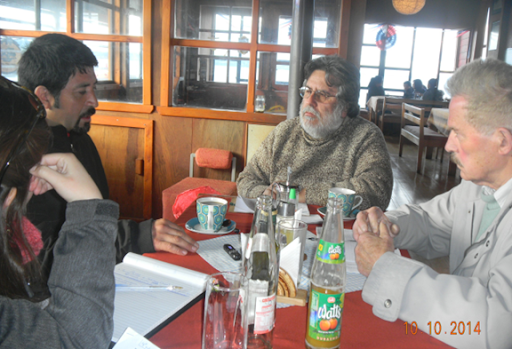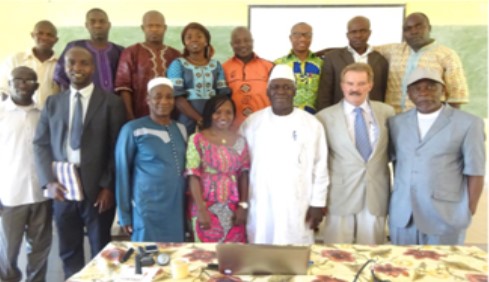Interdisciplinary Marine Affairs Concepts During the Cold War
By Vlad Kaczynski
Editor’s Note: Professor Vlad Kaczynski is an Emeritus faculty member at the School of Marine and Environmental Affairs. In 1976 he joined SMEA (then the Institute for Marine Studies) as a Senior Fulbright Scholar coming to the University of Washington from Poland. He earned degrees from the Merchant Marine Academy, Gdynia, and later to Higher School of Economics in Sopot and finally to University of Gdansk where he obtained his PhD degree in Marine Economics. This article traces his career as one of the few experts who understood the maritime economies of the then Soviet Union and its bloc of Eastern European countries. Kaczynski’s career spans more than fifty years and the emphasis has changed through time. Current international affairs make his perspectives even more relevant in seeking to understand today’s world. This article has been edited for brevity.
In Kaczynski’s own words:
Despite living behind the Iron Curtain I had the opportunity to travel overseas as a merchant marine officer on ships of Polish Ocean Lines and came to know more about outer World than most of my peers. This experience and my education led me to Santiago, Chile where I served as a commercial attached in the Embassy of Poland in the early 1960s.
The International Law of the Sea Conference in Caracas, Venezuela (1972) was a major life changer because as a Polish delegate I had an opportunity to meet many eminent American representatives such as Prof. Donald McKernan and Prof. Edward Miles from the Institute for Marine Studies, and James Storer from the US Department of State. These individuals inspired me to look for a possibility to learn from them after this 3-month Conference was over.
Such an opportunity happened in 1976 when I received a one-academic year Fulbright Grant to study at the University of Washington in a nation-wide competitive process administered by the United States Embassy in Warsaw.
This essay is organized along the lines of my major areas of interest and services I delivered as a Fulbright Scholar. After coming to University of Washington I immediately began academic teaching and research and was invited to present a series of lectures at marine science institutions and Universities around the United States and Canada. Later it was possible to deliver consulting services to international donors and governments. A very important part of my academic affiliation with SMEA has been a series of Fulbright missions from the US to foreign universities (Poland (two times), Republic of South Africa, Chile (two times), Republic of Guinea and China.
Academic activities during the Cold War Times
My arrival from Poland happened during the Cold War era amid growing international tensions with the Western World caused, between others, by expansion of the Soviet Bloc ocean activities. These included fisheries, merchant marine, ocean research, political/economic and military build-up in the seas and coastal areas. During the years 1950–1991, Soviet distant-water fleets shifted their activities from the Baltic, Barents, White and Black Seas as well as internal Soviet Far East waters to the whole Atlantic, Pacific, and Indian Oceans as well as Antarctic waters. At that time, half of the World industrial fishing fleet was under the flag of the Soviet Union measured in terms of tonnage.
Russia’s increased global reach aimed to supply ocean protein for domestic consumption; secure free access to marine living resources; expand Soviet political influence; and pursue its commercial interests. The timing and patterns of Russia’s activism in different regions evolved along largely independent strategic and economic tracks.
Questions were being asked in the Western World about the strategic objectives, motivations, goals and tools applied by the Soviet Union to attain these policy goals. My research addressed Soviet ocean fleet activities as these were of concern for many governments and international donors as well as for environmental organizations. Harvesting methods used by Russians were considered as destructive for many ocean resources exploited by these fleets.
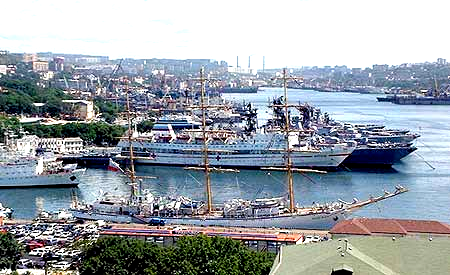
Graduate courses I taught at the UW focused on economic and management aspects of the Soviet Bloc maritime economy. Soviet relations with the developing countries were also discussed showing the major tools for gaining favorable responses of these states to the Soviet initiatives in such regions like West and South East Africa, Southeastern Pacific and Southeast Asia. Courses I offered at the UW Jackson School of International Studies were designed to show Soviet Bloc’s initiatives to expand its political and economic influences through various cooperation agreements including those supporting liberation movements. Targets for these arrangements included Northwest and Southeast African coastal states and South American countries with Soviet economic interest in their coastal resources. This resulted in new fishing opportunities for the Soviet Union in the Indian Ocean, Southeast Pacific and the Southwest Atlantic.
In light of the growing number of nations declaring extended ocean jurisdiction, Soviet ocean research specialists were asserting that the krill reserves in Antarctica and bottom fish in many areas of West Africa, Southwest Atlantic and Southeast Pacific Ocean offered unlimited possibilities of increased harvesting by the Soviet distant-water fleets. Justification for this expansion was made by economists who promoted increased investment in the Soviet ocean harvesting capabilities asserting that harvesting of the ocean protein is much less expensive than the production of protein from agricultural sources.
My research evaluated the costs and implications for the status of world fishery resources and my publications and lectures shed light on the fallacy of a number of these concepts. Because of these activities, the Polish Government “requested” my immediate return from my Fulbright assignment in 1977. However, I chose to stay in the US. With support of the UW and Institute for Marine Studies colleagues, I received a waiver from the US Department of Education of the requirement to return to Poland after my Fulbright mission was completed. I could, therefore, continue my affiliation with the UW.
Studies for international development organizations and the US government
With the expansion of the Soviet Bloc resource extraction activities in the world ocean and its growing presence in the coastal waters of the developed and developing nations – the interest of many international donor organizations and governments focused on measures to protect coastal state interests from Soviet overuse of their resources. Soviet activities in the coastal waters of the developing nations of Africa and South America were associated with support in some countries of their civil wars or liberation movements. Some coastal countries of Africa agreed with the Soviet Union to open access to their marine living resources in exchange for military equipment, munitions and political support of the local pro-Marxist parties.
Under the auspices of the United States Agency for International Development I was selected to consult on projects in Northwest Africa to advise on resource management, increase surveillance capacity and improve the seafood supplies for local people. One example was the Trade and Investment Project Services (TIPS) project addressing multiple fisheries management and development issues in Guinea-Bissau. The project was interrupted in 1998 by military activities intended to overthrow the government of neighboring Senegal.
International Fulbright Scholar engagement
My first Fulbright affiliation was in University of Washington in 1976. Following retirement in 2005, I continued my involvement with SMEA and had time to take advantage of opportunities to engage as a Senior Fulbright Scholar at a number of other institutions. My next opportunity was to return to Poland at the Warsaw School of Economics in 2007 where I taught courses in international marine affairs. What an amazing turn about after 30 years! I was able to obtain a second Fulbright in 2008 to the Warsaw University of Technology to provide about organization of the Department of Management.
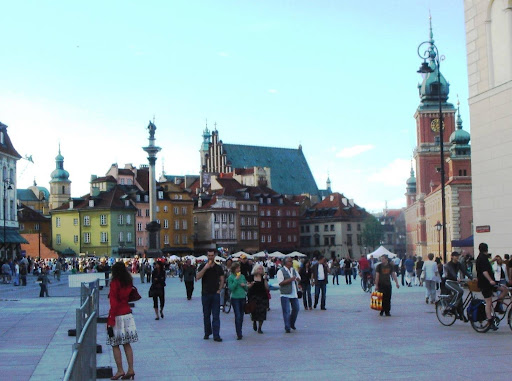
In 2011 I was again supported by the Fulbright organization to visit the Zhejiang Ocean University. I offered a series of presentations on international marine resource use and management and discussed possibilities of cooperation with SMEA.
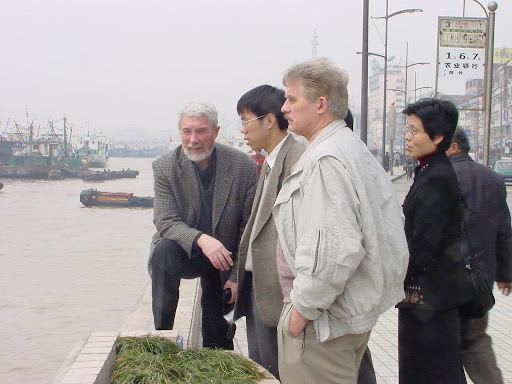
The following year (2012) I was again selected as a Senior Fulbright Scholar to offer a graduate course on marine studies and the South African marine environment hosted by the University of Nelson Mandela – Port Elizabeth. The Marine Department was established in close cooperation of SMEA based personal involvement of Prof. Marc Hershman, Marc Miller, Patrick Christie, Tom Leschine, and me – along with Prof. Craig Zumbrunen (Geography), Michael Verchot (School of Business), plus other American specialists and several students from SMEA.
In 2014, I was awarded a Fulbright Specialist Grant for 6 weeks to visit the University of Valparaiso, Chile focused on analysis of Chilean resource management and delivery of presentations on international aspects of global and South American ocean management issues. It included field research and interviews of Mapuche and Lefkenche ethnic communities.
The year of 2016 was devoted to a 6-week Fulbright Specialist engagement The Higher Institute of Veterinarian and Fisheries Sciences – Dalaba, Republic of Guinea where I made presentations on West African marine and aquacultural resource use for the benefit of local populations.
Finally in 2018 was selected to deliver a series of presentations for students and faculty on organizational aspects of the new department of Marine Affairs at the University of Valparaiso, Chile and to write a joint peer-review article with local professors on the access to marine resources by the south Chile indigenous Mapuche and Lefkenche populations.
Besides of these institutionally supported Fulbright missions (1976 -2019), I engaged in private consulting services for the US, Russian, Korean and Chinese fisheries industry companies helping them to develop their harvesting and processing capabilities as well as marketing and investment projects.
Concluding remarks
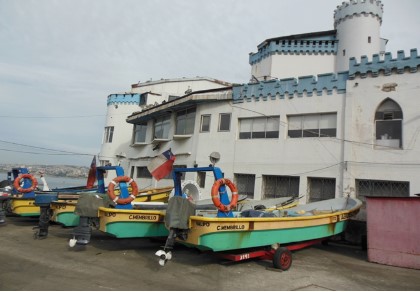
Thanks to the Fulbright grant awarded for me in 1976 by the US Embassy in Poland it was possible to freely assess Soviet ocean initiatives in the use and management of the marine living resources and share this information through teaching, research publication and invited presentation. It allowed me to offer several graduate courses for the University of Washington students – many of whom were later assigned to serve as US representatives and diplomats working on the US-Soviet affairs. My work in international aid organizations assisted developing coastal countries of Africa and South America. These contributions were later extended by a series of Fulbright grants allowing me to share an experience with a number of developing coastal states in Africa, and South America. None of these academic and international activities would have been possible without continuing support I received from colleagues at the University of Washington.
